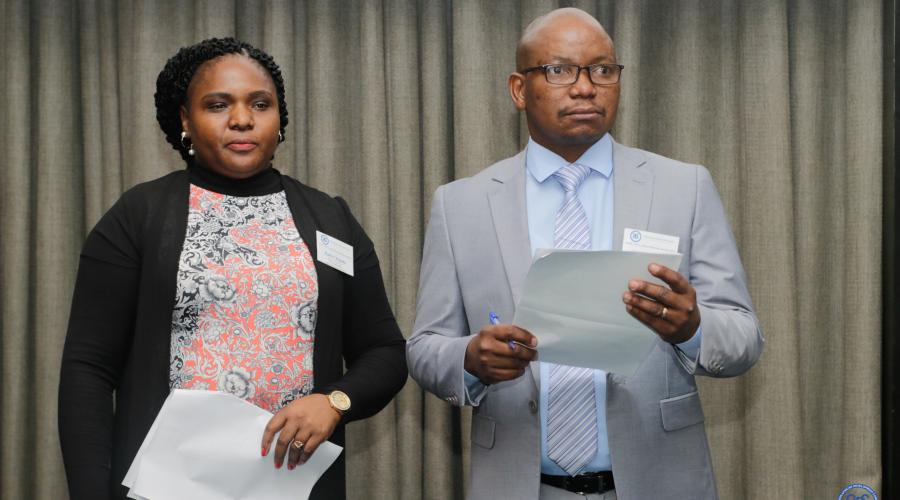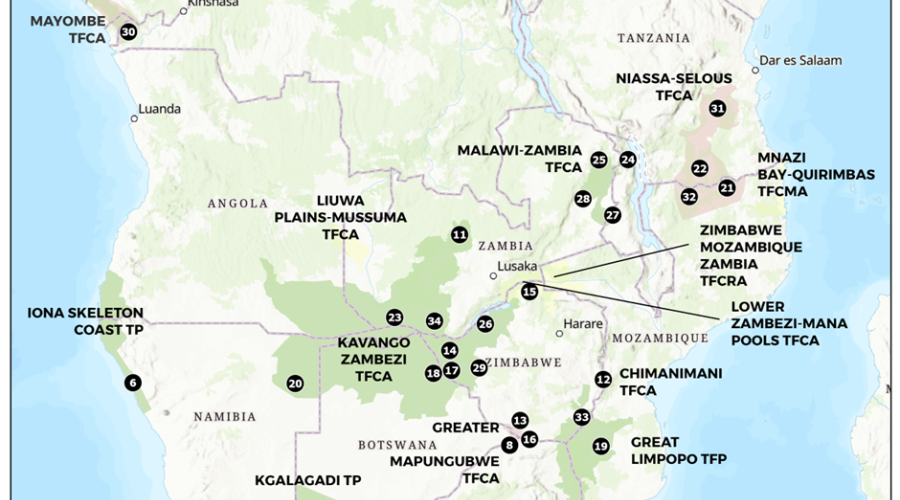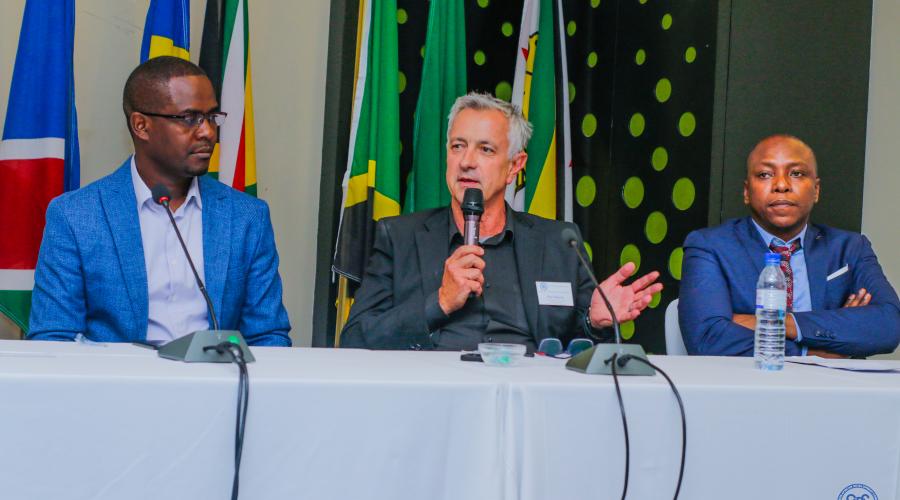EUR 53 Million in Funding Requests Made to the TFCA Financing Facility Show Demand and Capacity to Upscale Conservation Projects

In response to the second call for proposals issued by the International Union for Conservation of Nature (IUCN) on behalf of the TFCA Financing Facility, a total of 35 concept notes requesting a total of EUR 53 million were received by the deadline of November 15, 2023. According to team Leader at the Financing Facility, Ms Kudakwashe Chigodo, "As we reached the midpoint of the initial phase of the SADC TFCA Financing Facility in 2023, we observed significant progress towards our 2026 goals. This year was notable for the introduction of new grants and the allocation of increased funds to protected area management, tourism and park infrastructure improvements, and community livelihood enhancements. By the end of 2023, our grants portfolio included 26 projects with a total value of €14 million."
The applicants proposed a wide range of initiatives across various regions, with a particular focus on the Kavango Zambezi Transfrontier Conservation Area (KAZA), the Great Limpopo Transfrontier Conservation Area (GLTFCA), and the Malawi Zambia (MAZA) region. Additionally, there are proposed projects aimed at the Lubombo Transfrontier Conservation Area (TFCA) and other crucial ecosystems, demonstrating a comprehensive approach to conservation efforts. Kuda as she is known added "Our projects align with the SADC’s development goals, particularly supporting the new SADC TFCA Programme (2023-2033) and the Law Enforcement and Anti-poaching (LEAP) Strategy. This year, we also saw a reaffirmation of commitment from the German Government through KfW, with an additional €11 million pledged to our Facility, bringing the total commitment to €44 million. This support moves us closer to our €100 million target and underscores the importance of our work."
Alongside the new applications, the TFCA Financing Facility also announced the signing of eight grants in 2023. These grants include projects to be implemented by organizations such as Panthera, the Gonarezhou Conservation Trust, and the Wildlife Conservation Society (WCS). These projects from Zambia to Mozambique showcase a commitment to on-the-ground conservation action and community engagement.
Furthermore, the four successful project proposals from the first call emphasizes the dedication of both local and international stakeholders to conservation endeavors within the SADC TFCA landscapes. These projects encompass a diverse array of conservation approaches, from empowering local communities through initiatives like Children in the Wilderness to strengthening law enforcement efforts in protected areas. It is clear that the problem is not the lack of capacity or will of local stakeholders to implement good programs but rather a lack of financial resources to pay for implementation.
In conjunction with project funding, the Finance Facility has prioritized capacity-building efforts, with investments made in ranger training and the development of robust Environmental and Social Management Systems (ESMS). Through targeted training programs, rangers in Lesotho and the Niassa Special Reserve have been equipped with essential skills in human rights and law enforcement, which are crucial for effective conservation action in challenging environments. On capacity building Kuda noted that, "Furthermore, discussions with IUCN and the SADC Secretariat on implementing training facilities for wildlife rangers and TFCA managers have resumed. These developments are crucial for strengthening our operations and setting a solid foundation for 2024 and beyond. Our collective efforts are focused on developing a sustainable funding mechanism for the SADC TFCAs, reflecting our commitment to conservation and community support across the region. We believe such exciting developments lay a good foundation for our work in 2024 and going forward."
Moreover, the completion of the TFCA Financing Facility ESMS in 2023 represents a significant milestone in enhancing conservation governance and accountability. A recent side event hosted by the IUCN in Maputo aimed to raise awareness among TFCA Network members about the importance of the Environmental and Social Management Systems, highlighting a collective commitment to transparent and sustainable conservation practices.
As we navigate the complexities of conservation in the 21st century, the increase in funding requests and the implementation of impactful projects serve as beacons of hope. Through collaborative efforts and innovative approaches, we can strive towards a future where biodiversity thrives and ecosystems flourish for generations to come.
For more information about the TFCA Financing Facility, please contact Kudakwashe Chigodo on Kudakwashe.Chigodo[at]iucn[dot]org




